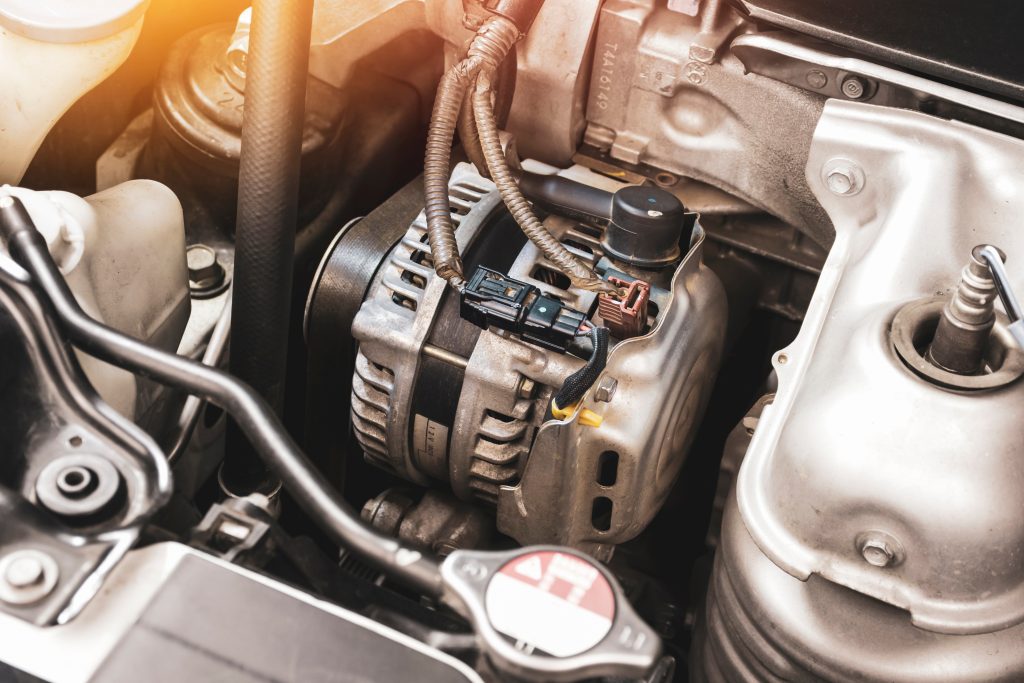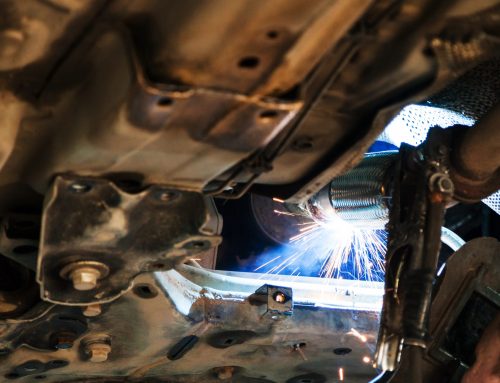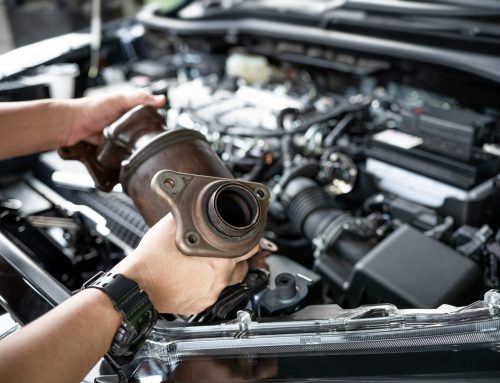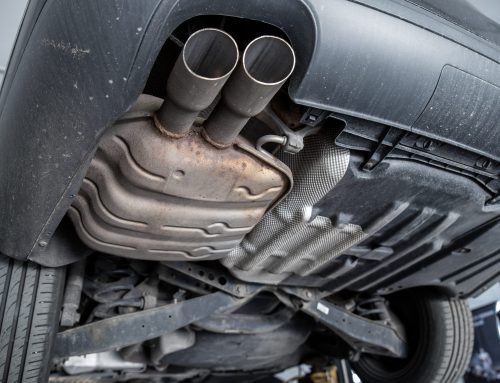
How to Diagnose and Fix Car Alternator Problems – Expert Tips for Quick Solutions
Is your car acting up, and you’re not quite sure if it’s the alternator? Don’t worry, we’ve got you covered! In this guide, we’ll help you get familiar with car alternator problems, how to diagnose them, and how to fix them. Whether you’re in Racine, WI, or anywhere else, understanding the ins and outs of alternator issues will help you keep your car running smoothly in 2024.
What Exactly Does the Alternator Do?
Your car’s alternator is like the heartbeat of your vehicle’s electrical system. It keeps everything running by converting mechanical energy into electricity and charging your car battery. If your alternator has a problem, your car’s entire electrical system is at risk, including lights, electronics, and the battery itself.
A failing alternator can quickly turn a nice drive down Sheridan Road into a frustrating ordeal. But don’t fret—understanding the signs of car alternator problems can help you take action before things get out of hand.
Top Signs of Car Alternator Problems
Car alternator problems can show up in several ways, and catching these signs early can save you from being stranded on the side of the road. Here are some common symptoms:
- Dim or Flickering Lights: If you notice your headlights dimming or flickering when you drive, it might mean your alternator is struggling to power your car’s electrical system.
- Battery Not Charging: One of the most common signs of alternator trouble is when the car battery keeps losing its charge. If you recently replaced the battery and it’s still going dead, the alternator may be the culprit.
- Strange Alternator Noises: Does your car make a whining or grinding noise? Alternator noise can be a sign that the bearings are wearing out or the belt isn’t running smoothly.
- Electrical Issues: Are your power windows slow to respond? Is the radio acting up? When the alternator can’t provide enough power, the car’s electrical components may struggle to function properly.
How to Diagnose Car Alternator Problems at Home
If you’re not sure whether your car’s battery or alternator is causing the problem, here are a few steps you can follow to diagnose the issue without needing advanced tools:
1. Check the Battery
Before blaming the alternator, start by inspecting your battery. Look for corrosion around the terminals, and make sure the cables are securely connected. If the battery is not charging despite everything being intact, it might be due to a failing alternator.
2. Listen for Alternator Noise
Turn on your car and pop the hood. If you hear unusual noises—like grinding or squealing—it could indicate an issue with the alternator bearings or belt. A noisy alternator is often a warning sign that something isn’t quite right.
3. Watch the Dashboard Warning Lights
Many modern cars have a dashboard light that looks like a battery or reads “ALT” or “GEN.” If this light comes on while you’re driving, it’s a warning that the alternator might not be working correctly.
4. Test with a Multimeter
If you have a multimeter, you can test the alternator output. Start the car and set the multimeter to measure voltage. Place the probes on the battery terminals. A healthy alternator should produce between 13.5 and 14.5 volts. Anything outside this range might mean trouble.
Common Causes of Alternator Failure
In 2024, car alternator problems are still one of the top reasons drivers find themselves in need of roadside assistance. Understanding why alternators fail can help you prevent these issues in the first place. Here are some common causes:
Worn-Out Bearings
Alternators have internal bearings that allow the rotor to spin smoothly. Over time, these bearings can wear out, especially if exposed to dirt or water. This can lead to alternator noise and eventual failure.
Loose or Damaged Belt
The serpentine belt connects the alternator to the engine, allowing it to generate power. If the belt is loose, cracked, or worn, the alternator won’t be able to do its job effectively. Regular maintenance can help you catch these issues before they cause a breakdown.
Electrical Overload
With all the new gadgets and accessories available for cars in 2024, it’s easy to accidentally overload the alternator. Adding too many aftermarket lights or audio components can strain the alternator and cause it to fail prematurely.
Should You DIY or Call a Pro?
While diagnosing car alternator problems can be simple, fixing them often requires specialized tools and knowledge. Here are some things to consider when deciding whether to tackle the problem yourself or take your car to a professional mechanic:
- Comfort Level with Repairs: If you’re comfortable working under the hood and have the right tools, you might be able to replace a belt or tighten connections. However, alternator replacement is a more complicated process that may be best left to a professional.
- Safety First: Electrical components can be dangerous if handled incorrectly. If you’re unsure, it’s always safer to call a mechanic like the experienced team at Dave’s American Discount Muffler in Kenosha, WI.
- Warranty Considerations: Keep in mind that DIY repairs might void your car’s warranty. It’s important to check your warranty coverage before making any major repairs on your own.
How to Fix Common Alternator Issues
Replacing a Faulty Belt
If your alternator issues are due to a worn or damaged belt, replacing the belt is relatively straightforward. Make sure you get a belt that matches your vehicle’s make and model, and follow the recommended process for installing it. This will help restore proper power flow to the alternator.
Fixing Loose Connections
Sometimes, car alternator problems can be fixed simply by tightening or cleaning the connections. Corroded terminals can prevent the alternator from charging the battery effectively. Use a wire brush to clean the battery terminals and reconnect everything securely.
Alternator Replacement
If the alternator itself is faulty, the best solution is often a complete replacement. Alternators wear out over time, and a new one can give your car a fresh start. A professional mechanic can replace the alternator and test the system to ensure everything is working as it should.
Tips for Avoiding Alternator Trouble in 2024
As we move into 2024, cars are more high-tech than ever. Here are some tips to keep your alternator and electrical system in top shape:
- Regular Maintenance: Stick to your car’s maintenance schedule, including regular inspections of belts and electrical components.
- Avoid Overloading: Be mindful of adding aftermarket electrical devices. Too many gadgets can overwhelm your alternator and lead to problems.
- Pay Attention to Warning Signs: If you notice any of the symptoms we’ve mentioned, address them right away. Ignoring car alternator problems can lead to bigger, more expensive repairs.
Keep Your Car Running Smoothly with Dave’s Muffler
Car alternator problems can be a real headache, but with the right knowledge and quick action, you can prevent small issues from turning into major breakdowns. If you’re experiencing electrical issues, strange noises, or a battery that just won’t stay charged, don’t wait for the problem to get worse.
Dave’s American Discount Muffler in Kenosha, WI, has been serving the community since 1989, offering expert automotive repair and maintenance services. Whether you need a simple belt replacement or a full alternator overhaul, our experienced team is here to help.
Give us a call at 262-656-1017 or stop by our shop at 7855 Sheridan Rd, Kenosha, WI. Let us keep you safely on the road in 2024 and beyond!




